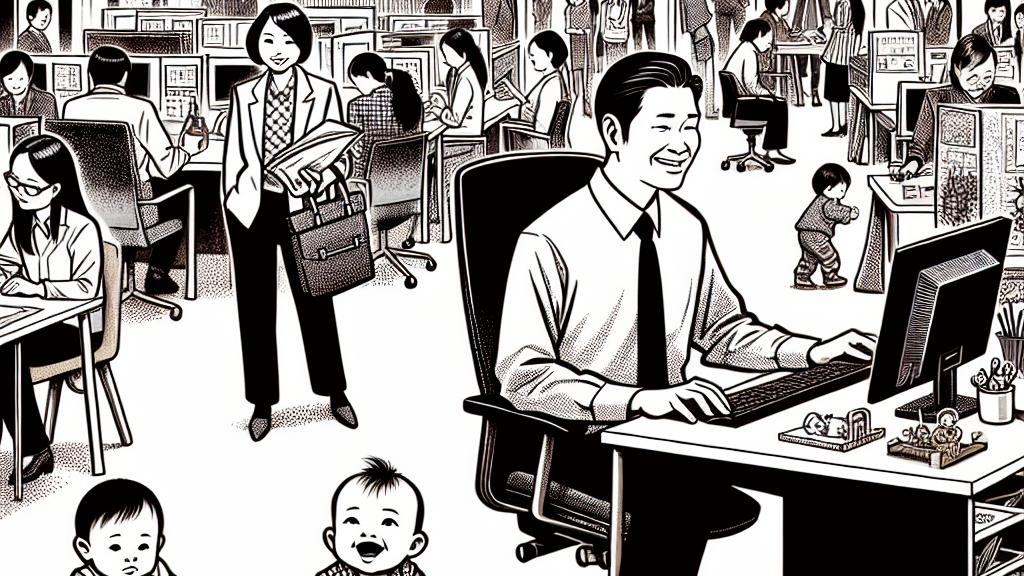When Work Meets Play: Japan's Bold Move to Bring Kids to the Office
Overview
- Local governments in Japan are now permitting employees to bring their children to work to support parents.
- This progressive initiative aims to improve employee retention amid demographic challenges.
- Shifts in workplace culture are fostering new attitudes towards integrating family life into professional environments.

Creating Family-Friendly Workplaces in Japan
In a groundbreaking move, several local governments across Japan, including Tokyo and Toyoake, have initiated policies allowing employees to bring their children to work. This effort directly addresses the challenges that working parents face when child care options are sparse, particularly in urgent situations. For instance, Mr. Junya Sagawa, faced with a childcare shortage, brought his one-year-old daughter Aoi to his office, highlighting the real-world implications of these policies. By fostering an environment that accommodates family needs, these initiatives aim to not only alleviate parental stress but also to attract and retain skilled workers, which is increasingly critical in a country contending with declining birth rates and a contracting labor force.
Cultural Shifts in the Workplace
The allowance for children in the workplace represents a significant cultural transformation in Japan. In Toyoake, early apprehensions regarding distractions from children evolved positively, demonstrated by a remarkable shift where 70% of employees expressed favorable views after experiencing the initiative firsthand. This evolving mindset underscores the potential for fostering a supportive community within workplaces, suggesting that blending family and work life can enhance employee morale and productivity. With growing support, other companies are likely to follow suit, promoting inclusive practices that recognize the realities of modern family dynamics.
Addressing Challenges with Structured Guidelines
While the initiative to integrate children into the workplace offers numerous benefits, it also presents practical challenges that demand careful navigation. Municipalities like Takayama have responded by establishing clear guidelines designed to uphold professional standards while accommodating parental needs. These regulations require that children be supervised at all times and emphasize the importance of maintaining confidentiality regarding sensitive information. By implementing such measures, these local governments aim to safeguard the integrity and productivity of the workplace, ensuring that family-friendly policies can be sustained without disrupting office norms.
The Broader Impact: National Demographic Strategies
Beyond the individual benefits of allowing children in offices, this initiative aligns with Japan's broader efforts to address its demographic crisis. The government has proposed significant financial support for childcare, allocating an annual budget of ¥3.5 trillion to enhance childcare services and alleviate parental burdens. By fostering a culture that prioritizes work-life balance and supports working families, Japan not only seeks to improve employee satisfaction and retention but also endeavors to counteract its aging population and declining workforce. These comprehensive strategies signal a commitment to creating sustainable economic growth while promoting family-friendly workplace practices.

Loading...